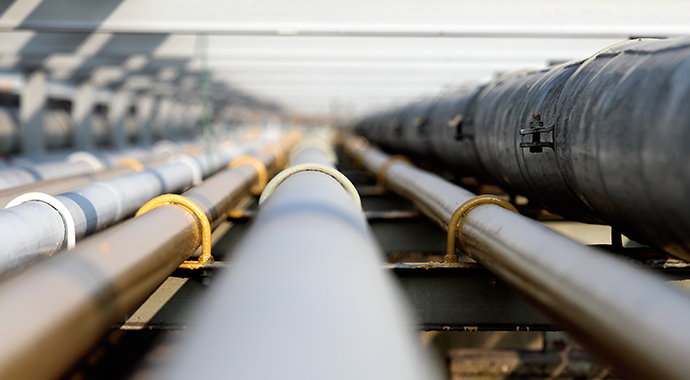Fueling Progress: How Wigmore Trading is Streamlining Transport via Pipeline in Nigeria
Fueling Progress: How Wigmore Trading is Streamlining Transport via Pipeline in Nigeria
Welcome to the exciting world of fuel transportation in Nigeria, where innovation and efficiency converge! In a country that heavily relies on oil as its primary source of energy, finding ways to streamline the transport process is vital for economic growth. Enter Wigmore Trading – a trailblazing company revolutionizing fuel distribution through an ingenious pipeline system. Join us as we dive into how this innovative solution is propelling progress forward, ensuring smoother operations, and ultimately shaping Nigeria’s future. Get ready to discover how Wigmore Trading is transforming the landscape of transport in Africa’s largest economy!
Introduction to Wigmore Trading and their role in streamlining transport in Nigeria
Introduction to Wigmore Trading and their role in streamlining transport in Nigeria:
Nigeria, with its vast landmass and growing economy, has always been in need of efficient and cost-effective transportation solutions. The country’s dependence on road transport has long been a major challenge for its development, leading to high costs, traffic congestion, and environmental pollution. However, with the emergence of pipeline transport as a viable alternative, there is hope for a more streamlined and sustainable future.
One company at the forefront of this transformation is Wigmore Trading Limited. Established in 2005, Wigmore Trading specializes in the distribution of petroleum products through pipelines across Nigeria. With over a decade of experience in the industry, they have become one of the largest distributors of refined petroleum products in West Africa.
Wigmore Trading’s innovative approach to transportation has significantly impacted the Nigerian market by providing an effective solution to the challenges faced by traditional modes of transportation. Their state-of-the-art pipeline network covers over 500 kilometers across five states – Lagos, Ogun, Oyo, Osun and Kwara – making it possible to reach multiple locations simultaneously without any delays.
Moreover, their pipelines are equipped with modern technology that ensures safe and efficient delivery of products while minimizing losses due to theft or spillage. This not only reduces operational costs but also helps preserve the environment by reducing carbon emissions from road transport.
Wigmore Trading’s contribution to streamlining transportation extends beyond just efficiency and sustainability; it also plays a significant role in boosting economic growth. By reducing logistics costs associated with road transport such as toll fees and maintenance expenses for trucks, businesses can save more money which can be reinvested into other areas of their operations. This opens up opportunities for new businesses to thrive while enabling existing ones to expand their reach.
The company’s commitment towards creating value for all stakeholders is evident through its strong partnership with key players in the oil & gas industry such as NNPC and PPMC. This enables them to maintain a steady supply of products, ensuring that their customers’ needs are always met.
Wigmore Trading’s innovative pipeline transportation system has revolutionized the way petroleum products are distributed in Nigeria. By streamlining transport and promoting sustainability, they have not only made a significant impact on the country’s economy but also set an example for other industries to follow. With their continued dedication towards providing efficient and cost-effective solutions, Wigmore Trading is undoubtedly fueling progress in Nigeria.
The current state of transportation in Nigeria and its challenges
The transportation sector in Nigeria is a crucial aspect of the country’s economy, with various modes of transportation being used for the movement of people and goods. However, over the years, this sector has faced numerous challenges that have hindered its efficiency and growth. In this section, we will delve into the current state of transportation in Nigeria and the major challenges it faces.
One of the main issues facing transportation in Nigeria is inadequate infrastructure. The road network, which accounts for about 90% of passenger and freight movements in the country, is poorly maintained and insufficient to cater to the growing population. This leads to frequent traffic congestions, long travel times, and increased vehicle wear and tear. The railway system also suffers from underinvestment and lack of modernization, resulting in slow train speeds and limited routes.
Another significant challenge facing transport in Nigeria is high fuel costs. With over 70% of Nigerians living below the poverty line, many struggle to afford private transportation or even public transport fares due to high fuel prices. This not only affects individuals but also businesses that rely on transporting goods for their daily operations.
In addition to these challenges, there are also security concerns that affect all modes of transportation in Nigeria. Road accidents are prevalent due to poor roads and reckless driving practices. Maritime piracy has been a persistent issue along major waterways, making it risky for cargo ships to navigate safely through Nigerian waters. Similarly, air travel has also been affected by safety concerns surrounding some airlines’ operations.
Furthermore, corruption within regulatory bodies has led to inadequate enforcement of regulations on vehicles’ roadworthiness as well as driver licensing standards. This results in an increase in poorly maintained vehicles on roads with unqualified drivers behind their wheels – a recipe for disaster.
There is a lack of coordination among various government agencies responsible for regulating transport activities across different states within Nigeria. This often leads to conflicting policies and procedures that hinder seamless movement across borders and increase the cost of transportation.
Nigeria’s transportation sector faces numerous challenges that affect its efficiency and sustainability. These issues need to be addressed urgently by the government and other stakeholders to enhance the country’s economic growth and improve the lives of citizens. Through innovative solutions such as pipeline transport, like that being implemented by Wigmore Trading, there is hope for a more streamlined and cost-effective system in the future.
Benefits of using pipelines for transportation
Pipelines have been used for decades as a means of transportation for various commodities, including fuel. In recent years, there has been an increased interest in utilizing pipelines as a more efficient and sustainable method of transporting fuel. Wigmore Trading, a leading company in Nigeria’s energy sector, has recognized the benefits of using pipelines for fuel transportation and has taken steps to implement this technology.
Here are some of the key benefits of using pipelines for transportation:
1. Cost-effective: One of the main advantages of using pipelines is that it is a cost-effective mode of transportation. Compared to other methods such as trucking or rail transport, pipelines require lower capital investment and have lower operating costs. This translates into cost savings for both the companies involved in transporting the fuel and ultimately for consumers.
2. Increased efficiency: Pipelines are a highly efficient way to transport large quantities of fuel over long distances. They can operate around the clock without any interruptions, making them an ideal option for delivering fuel to remote locations where other modes of transport may not be viable.
3. Reduced environmental impact: Pipelines have minimal impact on the environment compared to other forms of transportation such as trucks or trains which emit pollutants into the air. With pipelines, there is no need to worry about spills or accidents during transit, reducing potential harm to ecosystems and wildlife.
4. Improved safety: Along with reducing environmental risks, pipelines also offer improved safety compared to other modes of transportation. The risk of accidents or incidents is significantly reduced since there is no human involvement required during transit.
5. Consistent supply: With pipeline systems in place, companies can ensure a consistent supply chain by eliminating delays caused by factors like traffic congestion or weather conditions which could affect road-based methods.
6. Longer lifespan: Pipeline systems are built with durable materials and designed to last several decades with proper maintenance. This provides long-term stability in terms of reliable delivery routes for businesses depending on consistent supplies from source to destination.
The benefits of using pipelines for fuel transportation are numerous and extend beyond just cost savings. With Wigmore Trading’s implementation of this technology in Nigeria, the country’s energy sector is set to see improved efficiency and sustainability in its operations. This forward-thinking approach towards fuel transportation not only benefits companies but also has a positive impact on the environment and ultimately, consumers.
How Wigmore Trading’s pipeline system works and its impact on the economy
Wigmore Trading’s pipeline system is a crucial part of Nigeria’s economy, providing efficient and cost-effective transportation for fuel and other essential resources. In this section, we will delve into the intricate workings of Wigmore Trading’s pipeline system and its impact on the Nigerian economy.
The pipeline system starts with the extraction of crude oil from various oil fields across Nigeria. This crude oil is then transported to refineries where it is processed into different derivatives such as gasoline, diesel, and kerosene. From there, it is pumped through an extensive network of pipelines owned by Wigmore Trading to storage tanks located in strategic locations across the country.
One of the key advantages of using pipelines for transportation is its efficiency. Unlike trucks or tankers, which have limited capacity and can only transport a certain amount at a time, pipelines can move large quantities continuously without any physical barriers or obstacles. This allows for a steady flow of resources to be transported from one point to another, making it faster and more reliable than other modes of transportation.
Moreover, Wigmore Trading’s pipeline system also ensures safety during transportation. With trucks and tankers often prone to accidents that can lead to spills or leaks, pipelines provide a safer alternative that minimizes environmental risks. Additionally, since pipelines are underground, they are not affected by weather conditions like heavy rain or flooding that may hinder road travel.
In terms of economic impact, Wigmore Trading’s pipeline system plays a significant role in lowering transportation costs. The use of pipelines eliminates expenses related to trucking such as maintenance fees, driver salaries, fuel costs, tolls fees and insurance premiums – all these savings ultimately translate into lower prices for consumers.
Furthermore, having an efficient pipeline system also reduces bottlenecks at ports and congested roads caused by tanker traffic delays. As a result, businesses can operate more smoothly without interruptions due to resource shortages or inflated prices.
Additionally,
the use of pipelines has also led to job creation in the oil and gas industry. The construction, maintenance, and operation of pipelines require a skilled workforce, providing employment opportunities for thousands of individuals.
Wigmore Trading’s pipeline system has greatly contributed to the growth and development of Nigeria’s economy. With its efficiency, safety, cost-effectiveness, and job creation benefits, it is no doubt that this mode of transportation will continue to play a vital role in fueling progress in the country for years to come.
Case studies of successful pipeline projects in Nigeria by Wigmore Trading
Wigmore Trading, a leading provider of pipeline solutions in Nigeria, has successfully executed numerous pipeline projects across the country. These projects have not only improved the efficiency and reliability of transportation but also provided economic benefits to the local communities and nation as a whole.
One such successful project is the Escravos-Lagos Pipeline System (ELPS) which was completed by Wigmore Trading in collaboration with the Nigerian National Petroleum Corporation (NNPC). This 342-kilometer-long pipeline connects Chevron’s Escravos oil terminal in Delta State to Lagos, one of the busiest ports in West Africa. The ELPS has a capacity of transporting up to 100,000 barrels per day of crude oil and plays a crucial role in meeting Nigeria’s domestic fuel demand.
The ELPS project was completed within the stipulated time frame and budget due to Wigmore Trading’s expertise and state-of-the-art technology. It also adhered to strict safety standards, minimizing any environmental impact or disruption to local communities. The successful completion of this project has significantly increased export capabilities for Nigeria while reducing fuel transportation costs.
Another noteworthy achievement by Wigmore Trading is the construction and operation of Bonny-Port Harcourt pipeline for Shell Petroleum Development Company (SPDC). This 28-inch diameter, 60-kilometer-long pipeline connects Bonny Island’s natural gas processing facilities to Port Harcourt refinery, providing much-needed feedstock for petrochemical industries in Rivers State.
This project has greatly contributed to reducing gas flaring in Nigeria while promoting cleaner energy consumption through increased utilization of natural gas. It has also created job opportunities for locals during its construction phase and continues to provide employment opportunities through its operational maintenance activities.
Moreover, Wigmore Trading has played a significant role in developing infrastructure that supports local industries’ growth. One such example is their partnership with Dangote Group on constructing pipelines that transport refined petroleum products from Dangote Refinery to different parts of the country. This project has reduced the reliance on imported fuel and created a more sustainable supply chain, strengthening Nigeria’s economy.
Wigmore Trading has a proven track record of successfully implementing pipeline projects in Nigeria that have improved the country’s transport infrastructure, reduced environmental impacts, and promoted economic growth. Their expertise in project management, advanced technology, and commitment to safety have made them a trusted partner for many notable organizations in the Nigerian oil and gas sector.
Challenges faced during implementation and how they were overcome
Implementing a large-scale project such as Wigmore Trading’s pipeline system in Nigeria was not without its challenges. As with any major infrastructure project, there were several obstacles that needed to be overcome in order to ensure the successful and efficient operation of the pipeline.
One of the main challenges faced during the implementation phase was securing land rights for the construction of the pipeline. This proved to be a lengthy and complicated process, as it involved negotiating with multiple landowners and obtaining various permits and approvals from government agencies. The team at Wigmore Trading had to navigate through complex bureaucratic processes and cultural sensitivities in order to acquire the necessary land rights.
Another significant challenge was ensuring compliance with safety regulations and environmental standards. Pipelines are known to pose potential risks such as leakages or corrosion, which could have serious consequences for both people and the environment. To mitigate these risks, Wigmore Trading invested heavily in state-of-the-art technology and conducted rigorous safety training for their employees. They also worked closely with local authorities to monitor any potential environmental impact of their operations.
The logistics of building a pipeline over long distances also presented its own set of challenges. The terrain in Nigeria is diverse, ranging from dense forests to urban areas, making it difficult to lay down a consistent route for the pipeline. Additionally, there were logistical challenges in transporting materials and equipment across vast distances in order to reach remote areas where much of the work took place.
Despite these challenges, Wigmore Trading’s team remained resilient and dedicated towards finding solutions. They worked closely with local communities throughout the entire process, gaining trust by involving them in decision-making processes and addressing any concerns they had promptly.
Moreover, they continuously monitored progress on all aspects of construction activities using advanced tracking systems that allowed real-time monitoring of project milestones against established schedules. This enabled them to make quick adjustments when necessary while keeping all stakeholders informed along each step of the journey.
Through perseverance and effective problem-solving techniques, Wigmore Trading was able to successfully overcome these challenges and complete the project on time. The pipeline system is now fully operational, efficiently transporting fuel across Nigeria and supporting economic growth in the region.
While there were certainly obstacles to be faced during the implementation of this ambitious project, Wigmore Trading’s dedication, careful planning, and collaboration with local stakeholders allowed them to overcome these challenges and achieve their goal of streamlining transport via pipeline in Nigeria. This serves as a testament to their commitment towards sustainable development and progress in the country.
Future plans and expansions for Wigmore Trading’s pipeline system
As one of the leading oil and gas companies in Nigeria, Wigmore Trading is constantly looking for ways to improve and innovate our operations. Our pipeline system has been a crucial part of our success, allowing us to transport fuel efficiently and safely across the country. However, we are not resting on our laurels and have several future plans and expansions in the works to further streamline transport via pipeline in Nigeria.
One of our top priorities is to expand our pipeline network throughout the country. Currently, we have pipelines running from Port Harcourt to Lagos and from Lagos to Kaduna. However, we recognize that there are many other areas in Nigeria that could benefit from a reliable and efficient pipeline system. Therefore, we are actively working on extending our pipelines to reach more cities and towns, especially those with high demand for fuel.
In addition to expanding our network coverage, we are also investing in upgrading our current pipelines with state-of-the-art technology. This will not only increase their capacity but also improve their safety features. With advancements such as real-time monitoring systems, leak detection sensors, and automated shut-off valves, we can ensure even smoother operations while minimizing any potential risks.
Another important aspect of our future plans is implementing renewable energy sources into our pipeline system. As the world shifts towards sustainable energy solutions, Wigmore Trading recognizes the need for clean energy options in Nigeria as well. We are currently exploring ways to incorporate biofuels or solar-powered pumps into certain sections of our pipelines.
Furthermore, we understand that maintaining a robust infrastructure requires constant maintenance and upgrades. That’s why we have dedicated teams constantly monitoring and inspecting every inch of our pipelines for any signs of wear or damage. Through regular maintenance checks and timely repairs or replacements if needed, we can prevent any major disruptions in supply chains.
As logistics play a major role in successful pipeline operations, Wigmore Trading is investing in developing advanced tracking systems for efficient scheduling and delivery of fuel. This will not only help us keep track of the fuel flow but also assist our clients in planning their logistics and inventory management better.
Wigmore Trading remains committed to enhancing and expanding our pipeline system to meet the growing demand for fuel transportation in Nigeria. We are constantly innovating and investing in technology to ensure that we provide a safe, reliable, and efficient means of transporting fuel across the country. With these future plans and expansions in place, we are confident that we can continue to fuel progress in Nigeria’s energy sector for many years to come.
Conclusion: The potential for growth and development
Conclusion: The Potential for Growth and Development
Wigmore Trading’s innovative pipeline transport system has the potential to bring about significant growth and development in Nigeria. As discussed throughout this blog post, by streamlining the transportation of fuel, Wigmore Trading is not only addressing existing challenges but also creating new opportunities for the country.
Firstly, the reduction in transportation costs will have a direct impact on the price of fuel in Nigeria. With pipelines being a more cost-effective means of transport compared to traditional methods such as trucks and tankers, it is expected that there will be a decrease in fuel prices. This will not only benefit consumers but also boost economic growth by reducing production costs for businesses.
Moreover, the efficient delivery of fuel through pipelines will help to alleviate supply shortages and reduce dependence on imports. This will have a positive effect on the country’s trade balance and foreign exchange reserves. Additionally, it will create job opportunities within the oil and gas sector as well as related industries such as engineering and maintenance.
Furthermore, with increased efficiency and security provided by pipelines, there is potential for more investments in the oil and gas industry in Nigeria. This could lead to further technological advancements and modernization of infrastructure which would ultimately contribute to economic growth.
Apart from economic benefits, Wigmore Trading’s pipeline system also has environmental advantages. By minimizing road transportation of fuel, there will be a decrease in carbon emissions which aligns with global efforts towards sustainability. The reduced risk of accidents or spills associated with trucking also safeguards local communities and ecosystems.
It is evident that Wigmore Trading’s pipeline project has immense potential for transforming Nigeria’s fuel industry. From improving operational efficiency to boosting economic growth and promoting sustainable practices – this initiative has far-reaching benefits that can positively impact various aspects of Nigerian society.
As we look towards the future of transportation in Africa’s biggest economy, it is clear that investing in pipeline infrastructure holds great promise for progress and development. Wigmore Trading’s pioneering efforts in this field are a testament to the company’s commitment to innovation and its dedication to contributing towards Nigeria’s growth story.








Comments are closed.